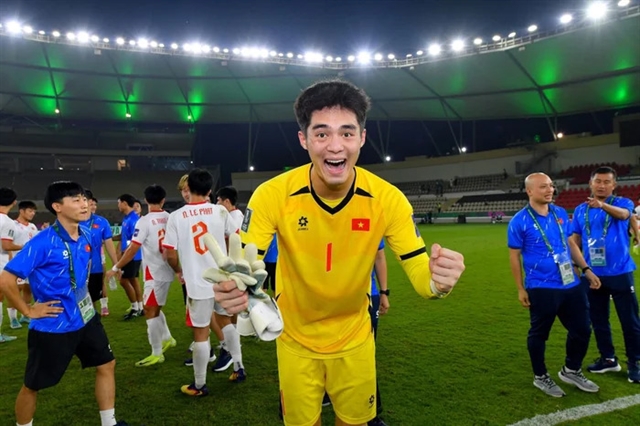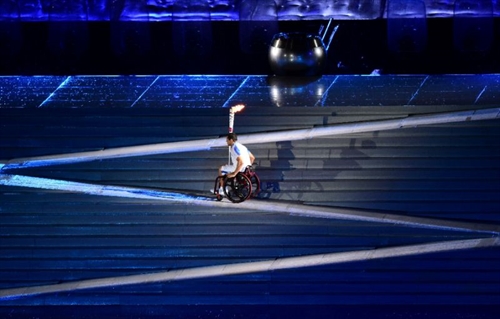 Sports
Sports

The stadiums may be mostly empty but passionate fans and the enthusiastic Brazilian hosts insisted on Thursday that the Rio Paralympics are off to a good start.
 |
| View of the opening ceremony of the Paralympic Games at Maracana Stadium in Rio de Janeiro, Brazil, on September 7. AFP/VNA Photo |
Paralympics
Only a smattering of seats were taken at the 60,000-capacity Engenhao stadium for the beginning of track and field events in
The judo and table tennis arenas at the Olympic Park were both only about one-quarter full, although turnout was much better at the swimming centre, where Brazilian Paralympic star Daniel Dias -- winner of six gold medals in London 2012 -- was competing.
At the Olympic Park, the main hub for the Paralympics and the Olympics which
"Then it was more than twice as many people, maybe three or four times more," she said, adding that she expects attendance to peak this weekend.
When a staff member took the microphone during a break at the table tennis arena to ask who in the crowd would like a gift of an autographed ping pong ball, he didn’t seem to realize at first that nearly everyone had already left -- there was no one to give the ball to.
But where numbers lacked, enthusiasm filled the gap.
About 100 Brazilians chanting "
And Thabiso Ratsoane, a track coach from
Organizers say they aren’t worried.
A joyful, dramatic and even sensuous opening ceremony played to a sold-out Maracana stadium on Wednesday night. Organisers say that while there was deep concern a few weeks ago about unsold tickets, they are now on track for healthy attendance figures.
"At this point we are very happy about the fact that the park is full of school-aged kids coming here to have a magical experience," spokesman Mario Andrada told journalists, putting latest ticket sales at 1.7 million.
Access still an issue
"The main legacy of these Games is certainly to convince the Brazilian society that we need more inclusion, we need more accessibility and we need to understand our differences, remembering always that everybody has the same heart," Andrada said.
"I think the opening ceremony went in that direction spot-on. We could see people worried, we could see people crying, we could see people rethinking about these issues."
Jadir Antunes, who lost both legs in a car accident when he was six, said that access on public transport to the Olympic Park, where he was watching basketball, was excellent -- but that Rio still has a long way to go.
"It has been very good, well organised," Antunes, 49, said, wheeling himself along.
"But in
Paul Eduardo Paggiossi, 54, a government employee from
"There was no cost for the chair and it’s all working well," he said, pushing Maria-Eduarda toward the swimming pool arena. "But it’s only the first day. Let’s hope it works well. For someone with low mobility, 100m is like 10 km. A person has to struggle a lot." AFP